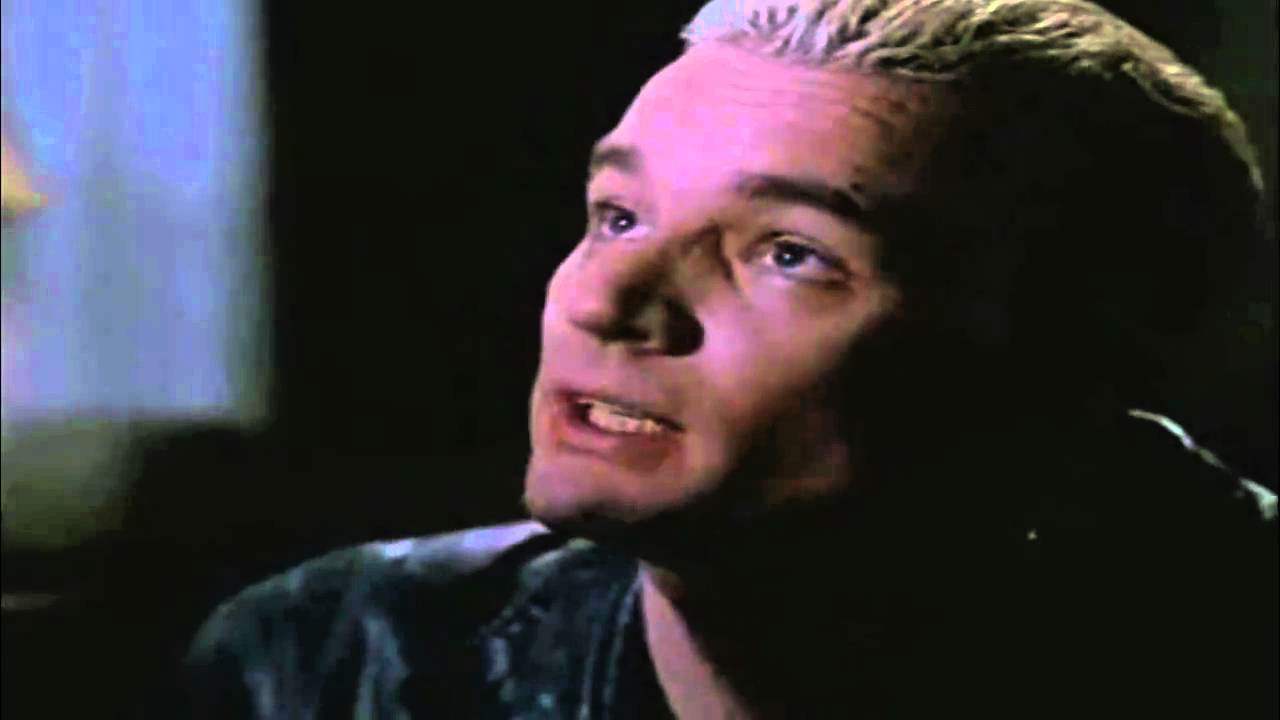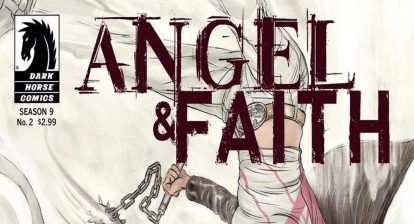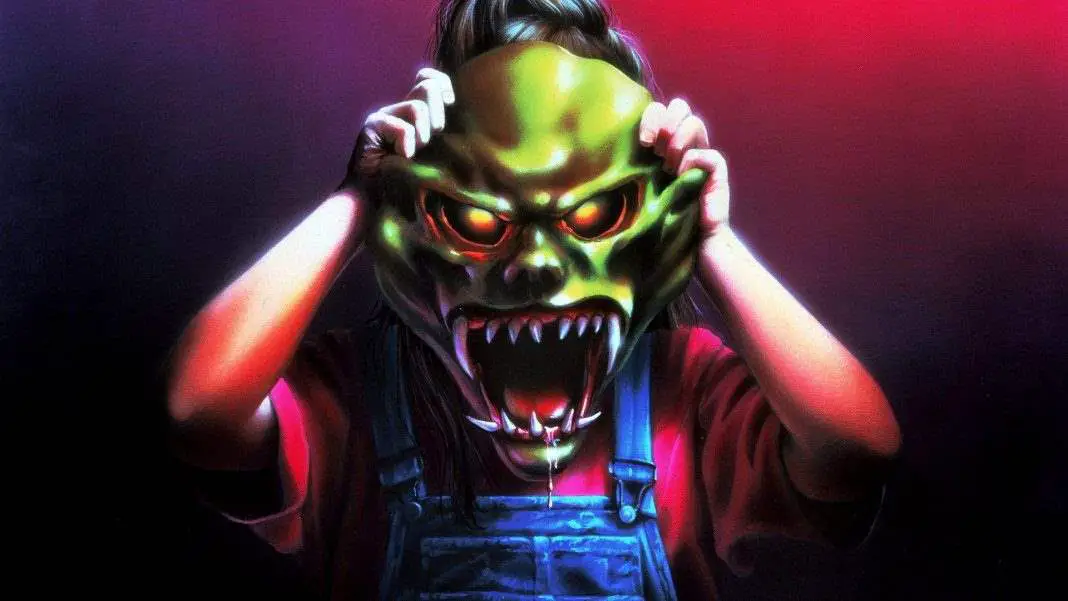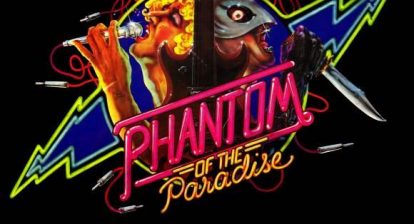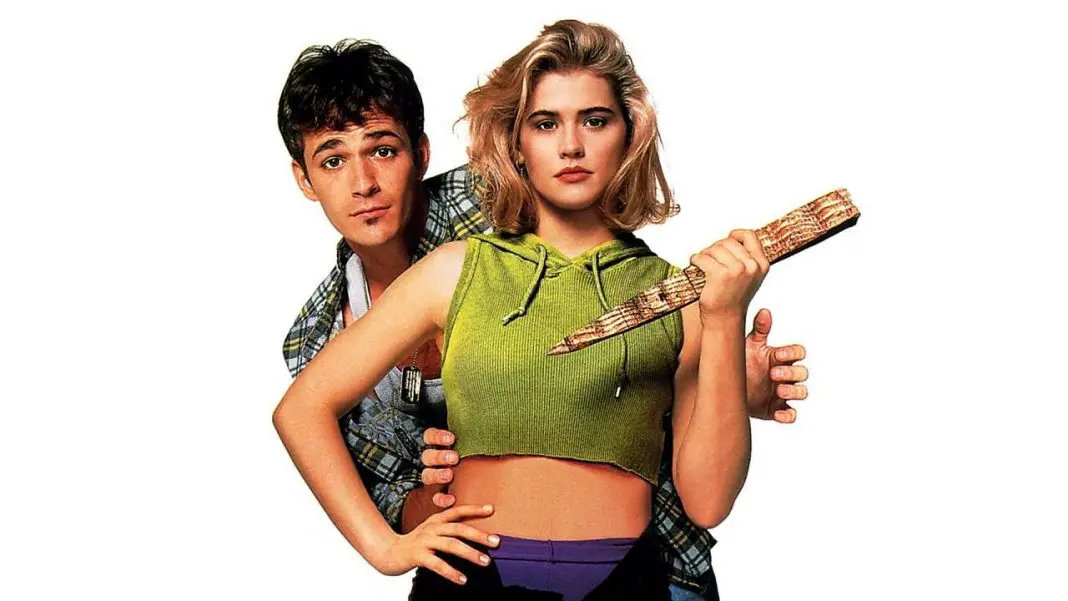In the 1930s, vampires were enigmatic villains. In the 60’s, they became a little more personable, a little more charming. In the ‘70s, though they retained that charming nature, they began to show their monstrous roots. In the ‘80s, vampires went counter-culture. They were punks in it for the thrill. In the ‘90s, they became romantic leads and by the end of that decade and into the early 2000s, they became action heroes. All of this is important to know because, in Buffy the Vampire Slayer, the character of Spike goes through every single one of these things. More than that, he goes through them in order.
In many ways, Spike was a happy accident. Buffy was a notoriously, meticulously well plotted show. Joss Whedon knew what he wanted from it years in advance. With Spike, though, he really didn’t have any idea. Originally, Whedon thought about making him a Texan, sort of a cowboy figure, which they wound up doing later that same season by introducing Lyle and Tector Gorch. When James Marsters came into audition, he tried out various accents before they landed on making the character a British punk. This was only a few days before Spike’s debut episode “School Hard” was set to film.
The original plan for Spike was that he was supposed to hang around as a thorn in Buffy’s side for a few episodes before ultimately getting killed in the mid-season two-parter “What’s My Line?” But they couldn’t do it. It took barely any time at all before the cast, crew and fans completely fell in love with the character. Spike was an anarchistic bit of chaos dropped into an exceptionally well-oiled machine, and that is perfectly representative of his character.
When I was younger, I didn’t really understand that Spike was one of the most popular characters on the show, if not the most popular. I just thought he was cool as hell. Every other character obeyed some kind of social hierarchy, whether it be the standard high school social order or the Watcher’s Council, everyone had an authority figure to answer to, except for Spike. Even when he was lame, he was cool. At his lowest point, living in Xander’s basement as a villain no longer able to cause any real harm, he could still prey on the insecurities of the other characters. He would always have a sarcastic remark.
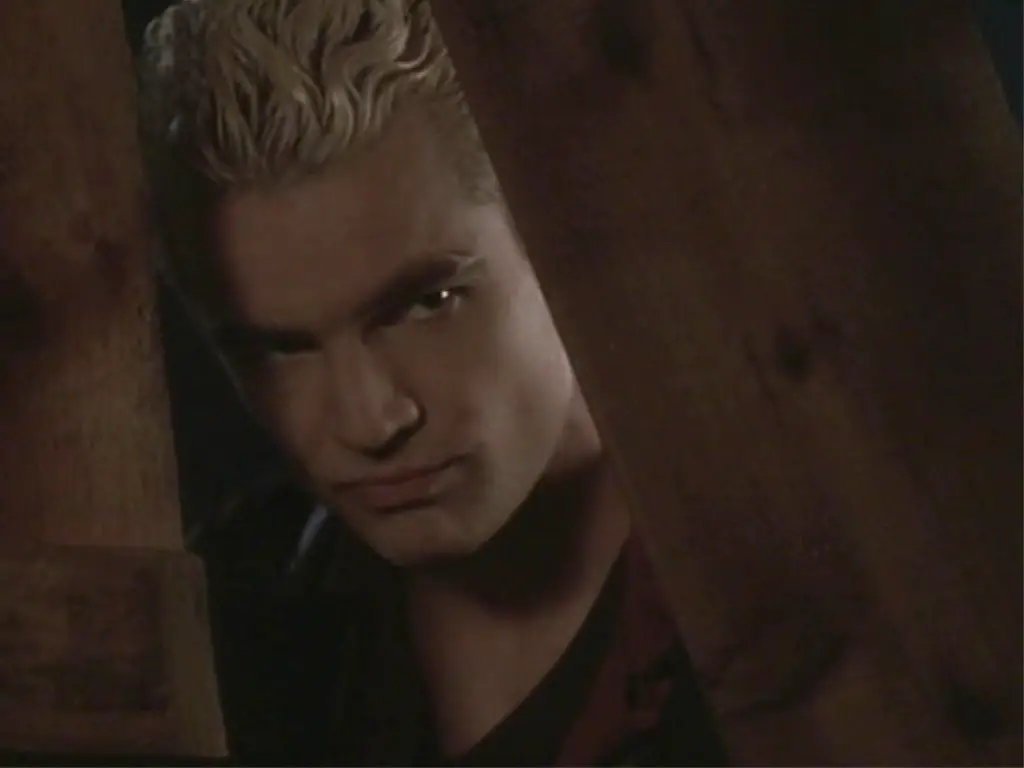
Usually, when change like this happens to this degree, they just wind up feeling like a completely different person. They become a different character. The reason Spike is so fascinating is because he is able to go through all of these radical changes without sacrificing his personality. He can be Spike the villain, Spike the hero, Spike the love interest, Spike in a Hawaiian shirt trying to stake himself, but he never stops being Spike.
His journey was not as meticulously planned out as things like the introduction of Dawn or Buffy’s death at the end of season five, but it feels just as natural. With the exception of one or two controversial moments, everything that happened to him felt like the thing that was supposed to happen to him. But it didn’t ever feel like writing. It didn’t ever feel like just delivering the story from point A to point B. It just seemed obvious, and that’s the brilliance of Spike.
The best thing about the character is that, from a glance, he looks aggressively simple. He’s a loud, obnoxious, sarcastic ass of a vampire. The weight of his character is revealed through the interactions with characters around him. Different characters on Buffy have different dynamics, and the way Spike relates to every single member of the cast is fascinating.
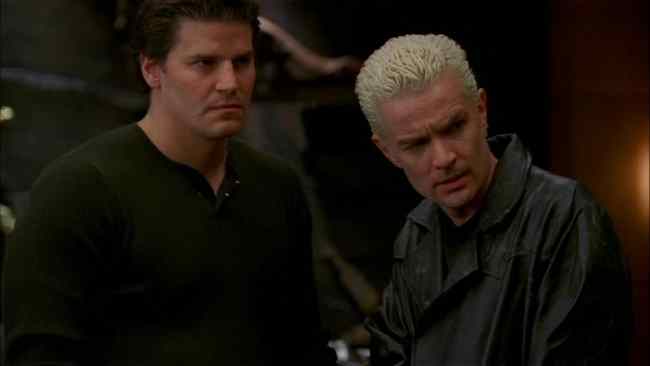 There’s been a lot written about him in the Buffy academic circles and the thing that gets harped on the most is the clear fact that Spike is the most perceptive character on the show. He immediately sees what’s going on with each member of the gang, usually things they haven’t revealed to anyone. Not even themselves. This goes all the way back to the very beginning. We’re introduced to him via his relationship with Drusilla, a character that nobody understands but him.
There’s been a lot written about him in the Buffy academic circles and the thing that gets harped on the most is the clear fact that Spike is the most perceptive character on the show. He immediately sees what’s going on with each member of the gang, usually things they haven’t revealed to anyone. Not even themselves. This goes all the way back to the very beginning. We’re introduced to him via his relationship with Drusilla, a character that nobody understands but him.
He speaks to each of them in a different way. With Joyce, he’s at his most sensitive, able to just pour his heart out. With Giles, he’s blunt and honest in a way that kind of comes out of respect more than anything else. With Xander, it’s nothing but bickering, second only to his relationship with Angel.
The only character with which Spike’s dynamic constantly shifts over the course of the show is Buffy herself. They start out as enemies, entering into a mutually destructive relationship before cautiously tiptoeing into a respectful romantic partnership by the end of the show. On Angel, Spike comes full circle not just by accepting his fate as a hero but by deciding to stay in Los Angeles and allow Buffy to live her own life.
These days, Spike is defined by his romantic relationship with Buffy. The question is always “Spike or Angel?” Which is somewhat unfortunate, and not only because those two vampires were clearly made for each other. It’s unfortunate because the question undercuts how great Spike and Buffy are as characters, individually.
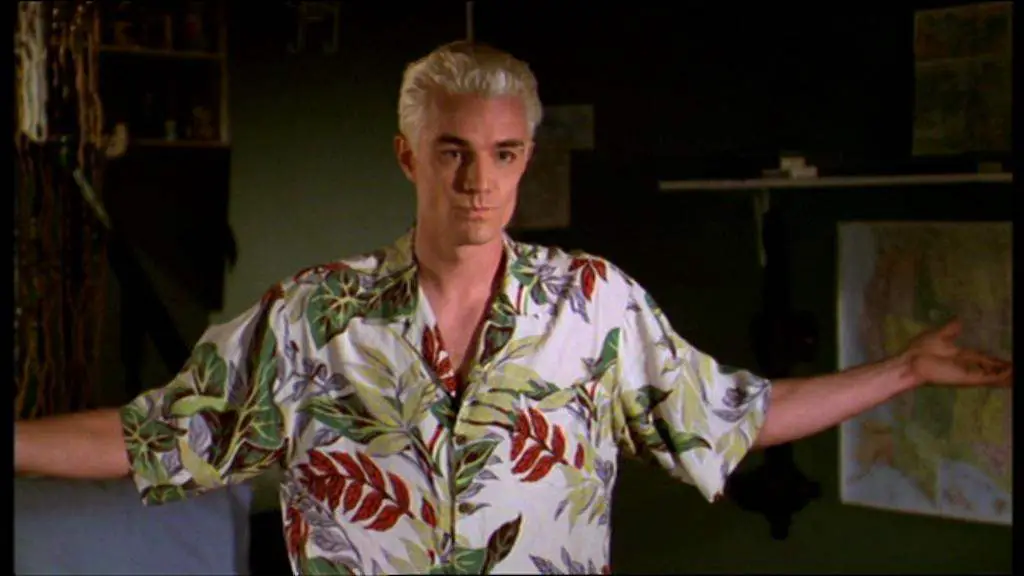 Much has been written about why Spike is such an anomaly among vampires. Going by the parameters set by the “rules” of Buffy, Spike feels more than a vampire should. The attempted rape of Buffy at the end of season six was done to remind viewers that having a chip in his head that prevented him from hurting people was not the same as a soul and that Spike was in fact evil. It was forced and uncomfortable and without a doubt far from one of the show’s best moments.
Much has been written about why Spike is such an anomaly among vampires. Going by the parameters set by the “rules” of Buffy, Spike feels more than a vampire should. The attempted rape of Buffy at the end of season six was done to remind viewers that having a chip in his head that prevented him from hurting people was not the same as a soul and that Spike was in fact evil. It was forced and uncomfortable and without a doubt far from one of the show’s best moments.
But even if that wasn’t the way to send the message, the message was nonetheless true. Spike was still evil when he entered into his relationship with Buffy for the first time and that was why Buffy treated that situation with such a sense of self-loathing. People wanted to believe that because Spike had been around for a few years, he was a part of the gang. But he wasn’t, not really. He cared about certain characters by that point, he’d clearly come to care for Joyce and Dawn. But just because he did care about characters before he got his soul doesn’t mean he had any idea how to care about them.
Spike was always looking to the other characters to gauge what was right and wrong. Even when he was “one of the good guys” before getting his soul back, he’d try to take credit for not feeding off unconscious people because he genuinely thought that would make Buffy happy. Again, while that moment at the end of season six is terrible, the reason it was allowed to happen from a character perspective is because Spike had genuinely started to believe he was one of the good guys as well. He believed he belonged in their circle and that they had no reason for any of their reservations against him.
He thought fighting alongside Buffy made him a different person without actually needing to seek to better himself. As pointed out, soulless Spike could only gauge morality by the reactions of the other characters and it wasn’t until he saw Buffy’s face in that moment that he even realized he’d done something wrong.
 Even though that may be one of the worst examples of it, that relates back to what might ultimately be the most interesting thing about Spike, both with and without a soul. And that’s the fact that he’s amazingly perceptive of every single character except himself. It takes him years to realize that the reason he’s been unable to kill Buffy is because he’s been in love with her the whole time. It takes him forever to realize that declaring you’re a good person does not make you one and that you actually need to seek out ways to be better instead of just declaring that you are.
Even though that may be one of the worst examples of it, that relates back to what might ultimately be the most interesting thing about Spike, both with and without a soul. And that’s the fact that he’s amazingly perceptive of every single character except himself. It takes him years to realize that the reason he’s been unable to kill Buffy is because he’s been in love with her the whole time. It takes him forever to realize that declaring you’re a good person does not make you one and that you actually need to seek out ways to be better instead of just declaring that you are.
It’s not even a stretch to say that Spike might not be a character who was ever designed to be in a relationship. He’s addicted to adoration. He’s in love with the fact that he can be allowed to love these women. He’s constantly putting them up on a pedestal. Even in his interactions with Buffy, some of his most proud moments are not when she reciprocates her feelings, but when she acknowledges that he loves her.
On that level, Spike is, was and ever shall be love’s bitch. It’s the idea of love that keeps him going. In that respect, as much as he’s developed and grown, as much as he’s changed, he’s still that mousey little man in Victorian England scrambling to write a love poem.
When we’re looking back on the legacy of Buffy after twenty years, Spike is in some ways the most representative of what the show was able to accomplish. Buffy was always about exploring old concepts and reshaping them in ways that felt fresh and original. That’s literally the essence of Spike as a character. Evil, good, idiotic… there’s a flavor of Spike for everyone. There’s no one character that made Buffy special, but every time he came on screen, he absolutely made it something to watch.

